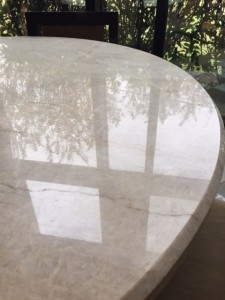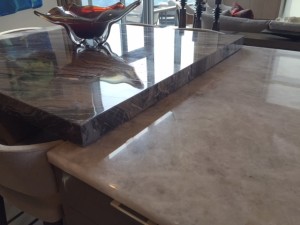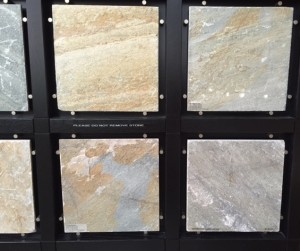I get this question all the time! Many customers use the terms Quartz and Quartzite interchangeably because they sound so similar, however, these two materials couldn’t be more different. Read on to find out why:

Quartz is an engineered, man-made material. It typically contains a combination of natural ground quartz and polymer resins. You can pretty much get Quartz in any color you choose.
It is a very durable material with little or no porosity. Quartz countertops can be a solid color or can mimic the veining of marble.
The only issues I’ve ever encountered with Quartz is that it can scratch from heavier objects and it can be damaged by excessive heat. Not all stone restoration companies are able to refinish Quartz, since it is an engineered material.
There are, however, many other engineered materials out there such as IceStone and these countertops can be refinished to remove acid etch marks.
If you are an avid HGTV watcher like I am, Quartz can be an option for kitchen countertops and bathroom vanities.
Quartzite is a natural stone; it is a hard, non-foliated metamorphic rock. Through a process of high heating and pressure, the sandstone changes into Quartzite. Quartzite is a durable natural stone, which makes it a good choice for high traffic areas in homes and buildings.

Quartzite is usually white or grey, but can also be found in shades of pink, red, yellow, green, blue and orange depending on which minerals are present. It has a unique look with natural variations.
Quartzite can also have various finishes; it can be polished or textured, which means it’s great for kitchen countertops as well as for patio floors.
If you are looking for a natural stone and want something other than marble or travertine, Quartzite is a great alternative. Another pro when it comes to Quartzite is that it is a very hard material, but even so, this natural stone can be refinished by a professional stone restoration company like International Stoneworks.

To learn more about how to care and maintain Quartzite stone surfaces: check out my blog post, “Quartzite: The Natural Stone You Haven’t Heard Enough About”
I hope I have unraveled this mystery and shed some light on what makes Quartz and Quartzite so different from one another.

